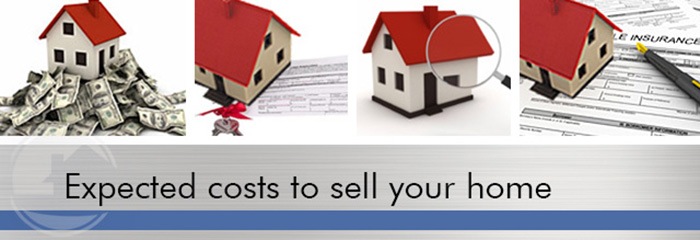Every home sale is different, however here is a general list of costs associated
with selling your home.
Agent Fees - 6%
There are usually two different agents involved in the sale of a home; the seller, (or listing) agent, and the buyer’s agent. The sellers’ agent and the seller agree upon an amount usually 6% for listing fees. 3% will go to the listing agent and 3% will go to the buyer’s agent. Any home listed on the MLS must have a buyer’s agent commission (BAC) listed. These fees are calculated, collected and distributed to the listing brokers by the title company at settlement.
Closing Costs - 3%
It is industry standard today that the seller pays for the buyers closing costs. If there is a lender involved, all the charges that the lender add to a loan are considered “closing costs”. Utah real estate laws state that closing cost fees asked for by a seller can be no more than 3% of the sales price of your home and that is usually what is asked. As a seller this will cost you but when you buy a next home you will receive this benefit. Some offers do not include closing costs while most offers do.
Title Fees/Insurance - $1,500-$3,500
The title company is the one who prepares all of the legal documents for the sale of the home. They work with the seller, the buyer and the banks to be sure all of the proper paperwork is completed accurately. They also are required (in most cases) to provide title insurance which insures all parties in case of past, current or future issues with the title of the home. This fee is based on the value of the home. There are many title companies and most provide the same services at roughly the same cost. These costs are calculated by the title company at settlement. Most publish a list of their costs.
Home Warranty - $300-$500
It is also industry standard that most sellers will ask the buyers to provide a home warranty with the purchase of the new home, This protects the new home owner against unseen or unknown issues with things like; appliances, furnaces, air conditioners, washers/dryers and so forth. It is meant as a protection against future problems, not as a repair for current known issues. It provides the buyer with piece of mind with the purchase of their new home.
Property Taxes - Varies
The seller is responsible to pay the current years’ property taxes for as long as they you lived in the home. If you lived in the home for 100 days (since January 1 of the current year), you would be responsible for 100 days of property taxes. Property taxes are usually collected each month with your mortgage payment and paid by the mortgage company when the taxes are due. Property tax is due at closing, however the mortgage company has also been collecting this amount each month in escrow. Any excess taxes collected in escrow will be refunded to you by your mortgage company.

